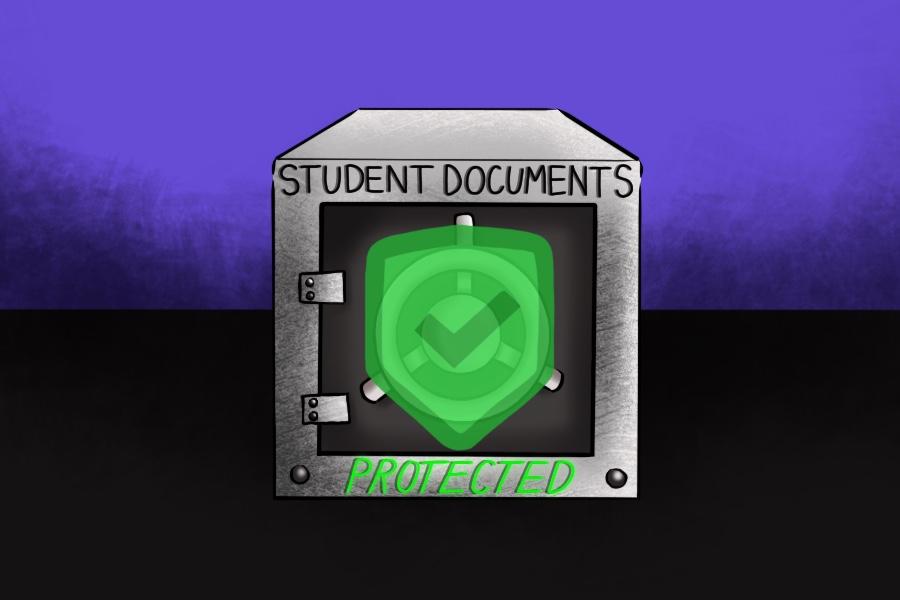
Article 26 Backpack initiative will give displaced students secure access to textbooks, transcripts, college registrars
Cloud storage has integrated itself within the technological mainstream the same way that smartphones, contactless payment and on-demand media streaming have. Arguably, it has been the technological innovation that has made these services and products possible. The work of the Article 26 Backpack initiative now aims to use cloud storage technology to store essential documents for students who lack reliable access to their own educational files.
Named after Article 26 of the United Nations’ “Universal Declaration of Human Rights,” which guarantees the right to an education for all people, the Article 26 Backpack is centered around students in war-torn countries with underfunded education systems. This initiative helps these students regain access to their educational documents.
With physical records potentially lost due to natural disasters, wars or mismanagement, the ability to have these documents safe on a third-party server is one less thing to worry about.
“We [students] have the benefit of already having all of our SAT and ACT scores in the system,” said Liz McAllister, a fourth-year design major at UC Davis and documentarian for the project. “They’ve already been evaluated and are readily transferable [to universities]. These people don’t have access to that.”
The project is the brainchild of Dr. Keith Watenpaugh, the director of the Human Rights Studies program at UC Davis. After being in the works for several years, the project received $500,000 from the Ford Foundation in October to fund the development of the program.
While the idea for the Backpack was novel within itself, the actual software was adapted from an existing framework created by IQ4, a New Jersey-based software developer.
“It was like an internal LinkedIn for companies like JP Morgan Chase, where you as an employee could list your skills and any specialized training you took while working there,” said Mona Finucane, the deputy director of the Article 26 Backpack.
The trial run for the Backpack will take place next spring in Beirut, Lebanon, a city with a high concentration of refugees and displaced students from the Middle East. 600 students will have their documents scanned and be given access to the Backpack.
“They’d come to this backpack event and the accreditors [from the American Association of Collegiate Registrars and Admissions Officers (AACRAO) and similar organizations from other countries] will evaluate them and say, ‘you’re eligible to go to this university and do this,’” McAllister said.
The accreditors would then issue a report for the student to take to their university of choice. The students will also be able to upload a personal statement to their backpacks, like those in college applications.
The Backpack is based on software developed by IQ4 called Passport, a software that acts, in the words of IQ4 CEO Frank Cecio, “as a digital resume.” But it is not only a place where employees can post their educational and work history — it is also a place where employers can create virtual classrooms to teach specific skills that employees may not have learned previously. Transferring this technology to the educational and humanitarian field was a pivot from skill verification to educational credit verification.
The aforementioned AACRAO creates a system in the US that determines how credits and units transfer between colleges so that a registrar for a university can easily figure out if incoming students have the education that they claim to have. Along with these standards, registrars have access to the National Student Clearinghouse, a nonprofit database containing millions of individual student files and transcripts, which allows admissions officers verifiable proof of a student’s academic record. However, there aren’t systems like this in place in many countries.
“We could validate [student data] from the Clearinghouse [if the students were from the U.S.], so we don’t deal with all that,” Cecio said. “In this case, we can’t. We don’t have this kind of function in Syria.”
The software, therefore, is more than just a place to store textbooks and transcripts remotely; rather, it is a peer-to-peer network directly linking students to universities’ registrars and vice versa.
The cloud storage, hosted via Amazon S3 service, will additionally be secured via block chains. Block chains are an integral part of cryptocurrencies such as Bitcoin, where each transaction is recorded on a virtual ledger, along with who the sender and recipient was. Once completed, the record of the transaction is permanently linked with the one before it, giving rise to the “chain” aspect of its name. This verifies the identities of both parties involved.
The team plans on training some college students in Beirut on how to use the Backpack and on how to enroll other students.
Finucane hopes to gradually create a self-sustaining structure wherein knowledge is passed from the top grades to the bottom. As knowledge passes from peer to peer, it instills self-sufficiency and trust in the Backpack.
Those involved with the project expressed that the Article 26 backpack would not only be a new dawn for those receiving the Backpack, but would conceptualize humanitarian projects in a more interdisciplinary way.
“It can’t just be the lawyers who are advocating; it can’t be the tech people, who have a product but no one to match the needs of the users to the actual capabilities of the software. McAllister said. “This day and age, where all this technology is available to us, the answer really has to come from many different teams working together.”
Written By: Dylan Hendrickson — science@theaggie.org



